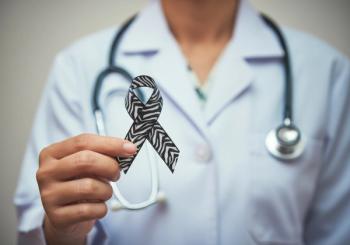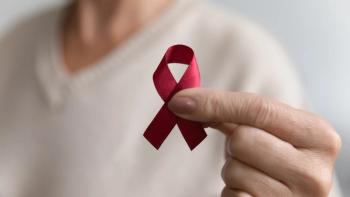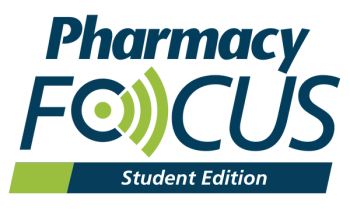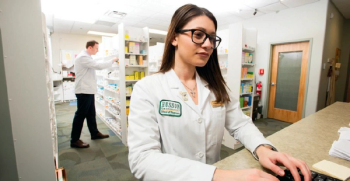
Students can better balance parenthood, academics, and self-care with planning, resilience, and strong support systems.

Students can better balance parenthood, academics, and self-care with planning, resilience, and strong support systems.

Charitable pharmacies provide essential medications to and address the health care needs of underserved populations.

Practice-based medical writing certificate programs offer tools to succeed in writing and beyond.

Patients must fight to be heard; health care providers are uniquely positioned to listen.

Gaps in curricula emphasize a need for enhanced interprofessional training to improve patient care.

The process teaches resilience, adaptability, and self-awareness.

Pharmacy students must have a comprehensive understanding of antiretrovirals to ensure efficiency and optimization of patients’ medical treatment.

In premenopausal women, denosumab significantly prevented bone loss and microarchitectural deterioration.

COVID-19 can reshape one’s academic journey and outlook on life.

The most important thing you must do is listen to the patient, understand their concerns, and by doing that, you will gain their trust to be able to treat them appropriately.

After noticing that there were few, if any, children’s books on the subject, Katrina Zearley wrote and published I Think When I Am Older I Might Be a Pharmacist!

In light of the growing numbers of students opting for post-graduate trainings, colleges and schools of pharmacy may want to consider offering electives geared toward exposing students to post-graduate career possibilities and provide guidance toward success.

In part 2 of the Pharmacy Times® Pharmacy Face-Off Gameshow™, pharmacy students from the University of the Sciences Philadelphia College of Pharmacy and the Rutgers University Ernest Mario School of Pharmacy entered a lightning round with clinical questions.

Pharmacy Times spoke with students at the Idaho State University College of Pharmacy and its partner program at the University of Alaska Anchorage College of Health.

Fourth-year student Ashley Lam discussed how pharmacists and pharmacy students can get involved in environmental issues.

Pharmacy Times spoke with students at the Idaho State University College of Pharmacy and its partner program at the University of Alaska Anchorage College of Health.

Even after some pharmacy school classes resumed in-person, students had myriad barriers and motivators to attending because of the COVID-19 pandemic.

Handling finances can be especially overwhelming and stressful for pharmacy students, so we spoke with Tim Ulbrich, PharmD, co-founder and CEO of Your Financial Pharmacist.



Jessica Louie, host of The Burnout Doctor Podcast, discussed burnout among pharmacy students and how to have a long-term perspective on mental health.


In this episode, Brooke Griffin, PharmD, founder of 21st Century PharmD, discussed how students have handled the pandemic, as well as how they can pursue leadership positions both during and after pharmacy school.

Several third-year pharmacy students at the Washington State University College of Pharmacy and Pharmaceutical Sciences said they were involved with COVID-19 testing and vaccination efforts, including organizing mass vaccination events and testing patients in their communities.

Not only are pharmacists drug experts, but the pandemic demonstrated that they can also perform COVID-19 testing and vaccinations alongside physicians and other health care providers.

The COVID-19 pandemic has had a massive impact on pharmacy students’ educations, according to a group of third-year students from the Washington State University College of Pharmacy and Pharmaceutical Sciences.

In a recent Student Café series, we asked students at the Washington State University (WSU) College of Pharmacy and Pharmaceutical Sciences what drew them to study at WSU.

To accelerate the national COVID-19 vaccination campaign, Husson University in Bangor, Maine, has announced that it will provide training to any pharmacist, technicians, or intern.

Although it is critical that we listen to every patient we treat, it's also important to listen to the needs of our bodies first, as this will allow us to better care for others.

Like most of us who pursue a career in health care, I want to help as many people as I can. I also want to continue to advocate for underrepresented minorities who would like a career in the field.